Crete — An explorer’s paradise
Guest post by Susan Nelson
From King Minos Palace to the Gorge of Samaria to the tiny island of Spinalonga, the Greek island of Crete is an explorers paradise. Crete shares both a Mediterranean and North African climate. It is extremely mountainous, with a high range crossing from east to west, producing the Amari Valley, Lasithi Plateau and several caves.
It was early spring when I landed in Iraklion, Crete, fresh off the overnight ferry from Peiraus. The throngs of summer sun worshipers had not yet begun, so great deals were to be had. After stopping for a cheese and egg crepe and cup of steaming hot Nescafe, I rented a small car for 15 euros a day and set out east to explore the island during the “calm before the storm” of the coming tourists.
Captivated by Elounda
Following the coastline I found my way to the colorful little harbor village of Elounda. Neatly kept shops and homes with small gardens and low rock walls reflected a people that care about their little village. Blue and red boats, some with the Greek “eye,” bounced and jiggled along the harbor. Old gentlemen in ironed slacks and jackets sat outside cafes drinking coffee and playing cards.
The waterfront took me around a wide curve to a bed and breakfast, overlooking the bay where I stayed for a few nights. Bare rolling hills framed the small village from behind, shadowing quickly as the sun began to set. Occasionally, dogs barked and birds chirped. Sheep bleated as a shepherd herded them across the road. Warm and bright, with friendly people, Elounda captivated me.
Food and friendly people
Strolling back toward town to tame my ravenous appetite, I followed the sound of a party to a small restaurant that appeared closed. Confused, I walked around the side and saw two men standing by a doorway. I barely spoke before they ushered me inside and seated me at a large food-infused table surrounded by a sea of laughing faces. I tried to back out, it appearing to be a private party of some kind, but they wouldn’t have it.
Within seconds, large plates of food were placed into my hands. Two men were clapping and dancing around the table. Why does Zorba the Greek come to mind? The women kept refilling my plate with delicious seafood that I hardly recognized. Everything had a good dose of olive oil. There were plates of pickled and marinated vegetables, slabs of herbed fish, sauteed octopus chunks, artichokes with wild rabbit, shrimps, sundried tomatoes with goat cheese, spinach pie, cheese pie, grilled lamb chops and bottles of wine appearing in endless supply. It couldn’t have been a merrier bunch.
Attempting to converse with mouthfuls of food was a challenge. Commotion ran high, and names were exchanged in a swirl of activity. I met Maya and her boyfriend from Lithuania, Angela from Manchester, England who was an ex-pat and worked in a coffee shop, the restaurant chef and owner, and many others. Maya informed me that it was the eve of the restaurant’s grand opening.
Spinalonga
Spinalonga was mentioned in our conversations as the town attraction. This island sits in the middle of the harbor and is the second most visited site in Crete after King Minos Palace. Immediately, I found myself hopelessly intrigued and knew I must investigate on the morrow.
Spinalonga is just a short distance across the water from Elounda. Used by the Venetians, (who had occupied the island since 1211) as a trading base during the 16th century, piracy and the threat of advancing Ottoman Turks caused them to build a stronghold on the island. Incorporating the ancient walls that already existed, they created a complex of fortifications including double rows of tall walls and huge towers.
The Ottoman Empire did invade Spinalonga and took possession from 1714 until 1903, when it became a leper colony until 1957. Supposedly, the Turks refused to vacate Spinalonga so the Cretans sent their lepers to the island. Needless to say, the last Turk left in 1903.
Today it is one of Crete’s main attractions as an archaeological park that receives a thousand visitors a day. Boats shuttle tourists daily every 30 minutes from Elounda harbor to see what remains of this fortress.
If I were to describe the soul of Elounda, it would be this: spellbinding, soul-stirring, exotic, friendly, and peaceful. If you should happen to stumble upon a restaurant at the eve of its opening, you will be warmly welcomed!
Only a few days in Elounda and I was on my way to explore more of Crete.
Susan is an independent travel writer with expertise in research, history, art history, and culture. She went to Italy for the first time in 2004 and has remained hopelessly infatuated. She loves walking the cobbled streets of Italy and exploring ruins that have existed for thousands of years. Giant aqueducts, earthy catacombs, duomos with first century house churches hidden underneath, mystical legends of the saints — it all takes her breath away.
Read Susan’s Blog
Follow @evabellalucia on Twitter
Connect on LinkedIn
Susan Nelson on Facebook
Photos courtesy of Susan Nelson

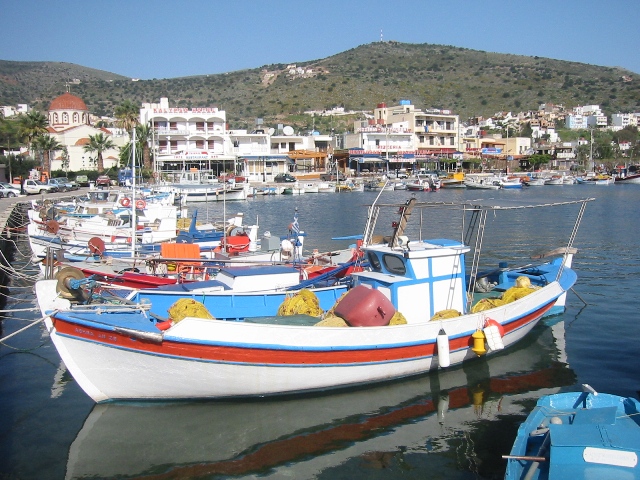
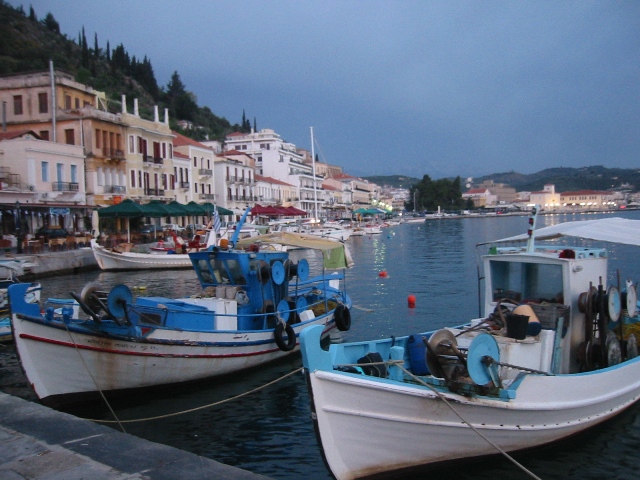
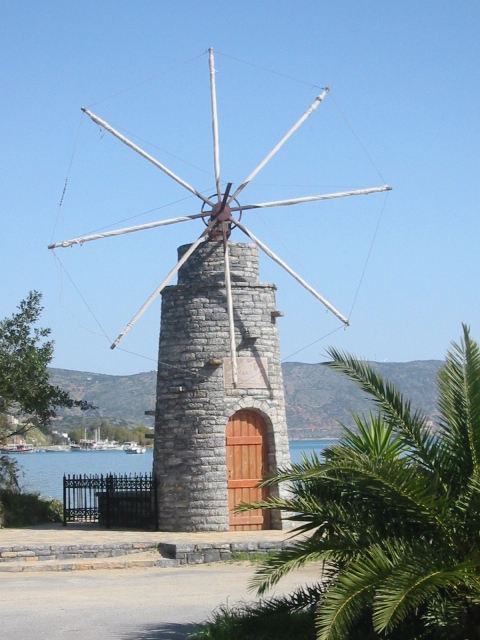
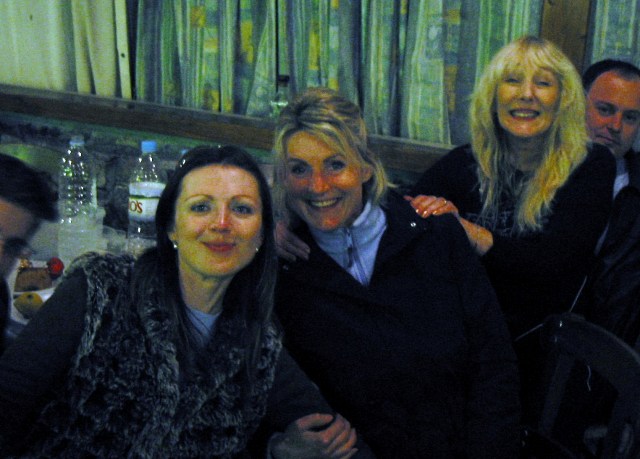

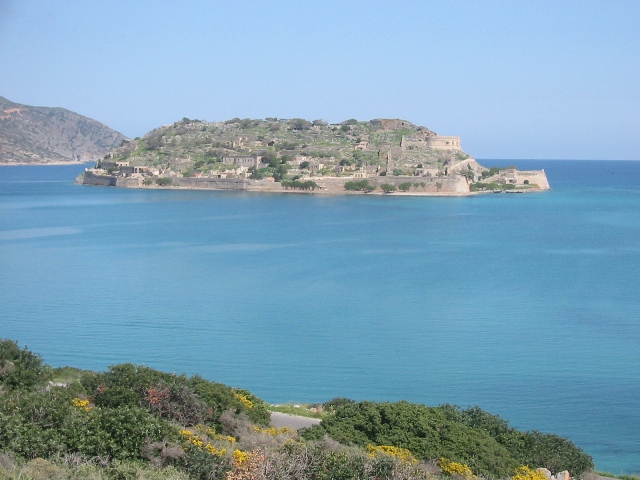

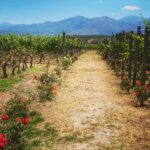
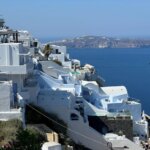
Enjoyed your account, Susan. It’s not long since I was reminiscing about the island. I was based at Rethymnon at the other end, so spent more time in the Chania area, but would have loved to visit Aghios Nikolaos and Elounda. It’s a beautiful island. 🙂
My stomach is rumbling as I read the description of what is being eaten in the restaurant. I remember being led to the back of the restaurants – for every dinner we ate in Greece and just pointing at what we wanted. I too found the Greek people to be extremely welcoming and friendly though i never crashed a private party.
Thank you for introducing me to Elounda.
Leigh, thank you for the comment…..yes, the food was to die for. And those wonderfully warm people….a most memorable experience for sure.
Thank you for your comment Johanna. I remember the food just astounded me….so much and so scrumptious! I have yet to experience anything similar. I would love to go back someday.